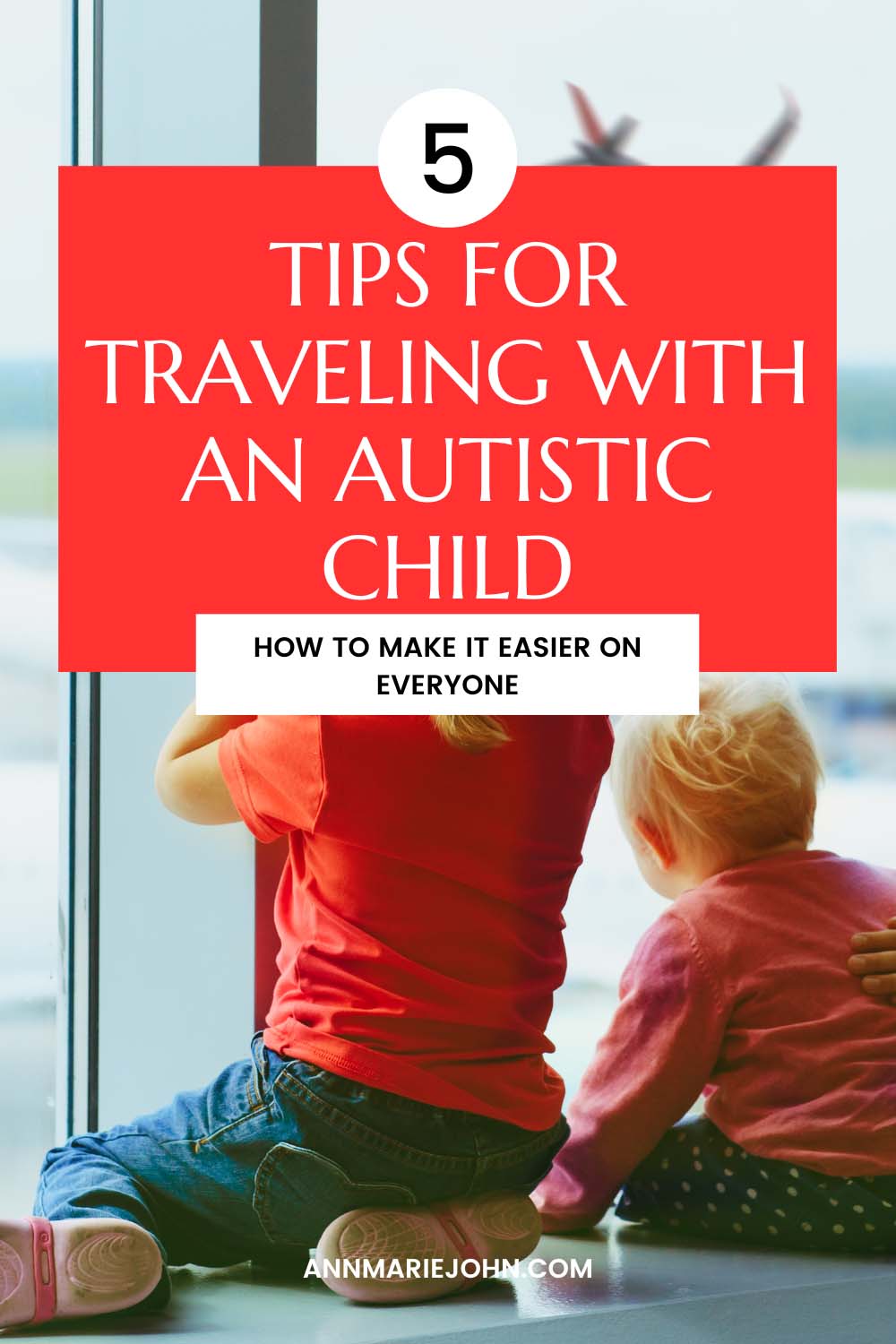Traveling with an autistic child can indeed present unique challenges, but it doesn’t always need to be an ordeal.

Understanding their needs and implementing thoughtful strategies will make your journey much easier. With that in mind, here are some practical tips aimed at making the experience more relaxed and enjoyable for everyone involved.

Understanding Autism: The Basics
Autism, a developmental disorder recognized by challenges with social skills and repetitive behaviors, can be very intricate. Scientists think both genetics and the environment play significant roles in its cause.
For example, there’s been a class action lawsuit against Tylenol claiming that its use during pregnancy might have led to increased autism rates, although it should be noted that the research on medicinal impact is still contentious.
Importantly, while the search for answers continues about what exactly causes autism, our focus here will be more practical. Specifically, how to navigate real-life scenarios when traveling with an autistic child.
And remember, your kid’s unique needs don’t make them any less worthy of fun family moments spent exploring this big, beautiful world together.
Preparation is Key When Traveling with An Autistic Child
Understanding your child’s needs and carefully planning ahead can make your journey smoother. Here are a few tips:
- Familiarize Your Child: Try to desensitize them to the upcoming environment by showing videos of the places you’ll visit or even rehearsing some parts of the trip.
- Pack Their Favorites: Don’t hesitate to bring their favorite items that provide comfort, such as blankets or toys.
- Prepare a Schedule: Keeping a routine helps many autistic individuals cope better with changes.
By focusing on what you know has comforted them in past travels (it may take a bit of trial and error), things could be made simpler. This level of preparedness not only curbs possible anxiety for you but also allows your child to enjoy these adventures more fully.
Choosing Suitable Accommodation for Your Child’s Needs
When deciding where to stay during your trip, consider options that will help minimize discomfort for your autistic child.
- Quiet Locations: Choose a place located in quieter areas, away from the hustle and bustle of the city.
- Space Matters: Opting for accommodations with separate living or sleeping spaces can make a significant difference.
- Kitchen Facilities: Having the option to prepare meals may reduce stress related to unfamiliar foods.
Keep in mind that hotels are not the only solution. Holiday rentals often provide more flexibility and control over noise and food matters. By ensuring that these little details fit nicely into place, you’ll be creating an environment that feels safe and comfortable, enhancing the precious journeys you embark on as a family.
Navigating Airports and Public Transportation: A Practical Guide
Public transportation can be overwhelming for a child with autism. Here are some strategies to make it easier:
- Early Arrival: Arrive early at the airport or station to avoid rush times.
- Noise-Canceling Headphones: These can help minimize noise discomfort during transitions or air travel. They’re also good for eliminating noise pollution at home as well.
- Familiarization Visit: If possible, visit the local airport or station in advance so your child knows what to expect.
Transport employees and personnel should be able to assist you if made aware of your situation, so don’t hesitate to ask for help. Your patience, combined with these planning efforts, will pay off.
Dining Out with Autistic Children: Tips and Strategies
Trying new cuisines can be an adventure, but it may pose some challenges for autistic kids. Here are a few tips to help:
- Bring familiar food: Having their favorite healthy snacks along as backup is never a bad idea.
- Avoid peak hours: Dining during less busy times means fewer people and reduced noise.
- Use visual menus: Show your child photos of the dishes to help them choose.
These small considerations will make dining out more enjoyable, rather than stressful. And the more you participate in these experiences together, the easier it will become.
Coping Mechanisms for Unexpected Situations on the Road
Travel is unpredictable and can sometimes lead to stressful situations. Being ready with coping mechanisms may help:
- Practice deep-breathing exercises: It’s a proven method of calming anxiety.
- Use comfort items: Always have them handy in case your child needs soothing.
- Develop a ‘safe’ word or signal: This tells you when they’re feeling overwhelmed.
Unexpected shifts don’t necessarily mean disaster. With these strategies, you can navigate through unanticipated events confidently.
Also, consider that each experience is also an opportunity for your child to learn resilience and adaptation skills, which are invaluable life tools that will continue to benefit them long after the holiday luggage has been unpacked.
The Bottom Line
While every child is an individual and may not respond in the same way to each tip, this guide aims to help lighten your load when traveling with an autistic child.
You also need to make sure that the rest of your family is on board with what you have planned, and understands what role they have to play in this scenario.
Ultimately, preparation and understanding are critical and will serve you well on whatever journeys you have planned.
